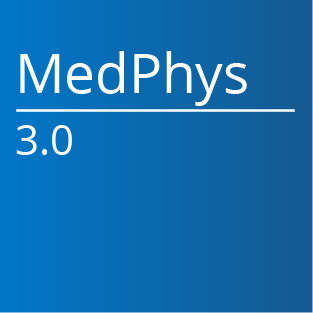Expert Career Advice for Job Seekers
 Who is Peter Weddle?
Who is Peter Weddle?
Peter Weddle is a recruiter, HR consultant and business CEO turned author and commentator. Described by The Washington Post as "... a man filled with ingenious ideas," he has earned an international reputation, pioneering concepts in Human Resource leadership and employment. He has authored or edited over two dozen books and been a columnist for The Wall Street Journal, The National Business Employment Weekly, and CNN.com. Today, he writes two newsletters that are distributed worldwide and oversees WEDDLE's LLC, a print publisher specializing in the field of human resources. WEDDLE's annual Guides and Directory to job boards are recognized for their accuracy and helpfulness, leading the American Staffing Association to call Weddle the "Zagat of the online employment industry."
Weddle's Syndicated Content:
Kindergarten Can't Help
It's commonplace these days to say that everything you need to succeed in human affairs you learned in kindergarten. If you follow that advice in your job search, however, you're likely to be disappointed in the results.
Don't Be a Job Seeker
Employers address you that way on their corporate sites. Recruiters use the very same term to describe applicants for their openings. But, you should never ever accept the label. Don't let anyone categorize you as a "job seeker." Compel them to see you as a "person of talent" instead.
The Introverted Job Seeker
Job seeking is all about putting yourself out there where employers and recruiters can spot you. It requires that you reach out and connect with strangers, both online and off. Finding a new job is fundamentally a social experience, so if you're an introvert, how can you succeed?
How to Compete with Employed Job Seekers
It's hard enough to land a good job in today's sputtering economy, but now it's going to get even harder. More and more people who already have a job have started to enter the job market. They're amping up the competition and creating a new challenge for those who are out of work: how do you compete with employed job seekers?
Being Realistic
The only way to conclude a successful job search is to apply for the right opportunities. You only have so many hours in the day so you must only compete for positions where you have a legitimate chance of being selected. How do you make sure you're being realistic? With a two-step self assessment.
You Can't Get a Job By Applying For It
Picture the scene: you're cruising through your favorite job boards on the Internet and come across a great job for which you are perfectly qualified. So, what do you do? You whip out your trusty resume and apply for that gem, right? Wrong. The key to landing a new or better job in today's economy is to campaign for it.
Use Your PALs to Network Effectively
You can now find hundreds of discussion groups on the Web that are specifically targeted to job seekers. They attract large numbers of people, but unfortunately, don't do most of them much good. Sure, it may help to commiserate with others in transition, but if your goal is to find a new job, there are better places to network.
Which Range Do You Want to Call Home?
Recent research from the National Employment Law Project contained a sobering finding. A majority of the jobs lost in the last recession were in the middle range of wages, while most of the new jobs added in the recovery have been in the lower range. This situation seems unlikely to change for the foreseeable future. It is your new normal, which means you have to ask yourself, "which range do you want to call home?."
A Talent for All
President John F. Kennedy once said that "all of us should have an equal opportunity to develop our talents." While he was speaking of his civil rights initiative, his words are also applicable to the challenge of finding a job in today's economy. All of us should have a chance to express and experience our talent at work, but many, maybe even most of us don't. Why? Because we've been taught that we don't have talent and, therefore, don't know what our talent is.
Be a Career Activist, Not a Job Seeker
Finding a new or better job is fifty percent perspiration and fifty percent imagination. It takes hard work and a hard look at yourself. Success depends on both the effort you put in and what's inside your head and heart.
The 2 Questions You Should Always Ask in an Interview
The old axiom remains as true today as it was years ago. People join companies, but they leave supervisors. In other words, no matter how attractive a new job or employer might be, if you and your new boss are incompatible, you're unlikely to be successful ... or last very long on-the-job.
Don't Look for a Job, Look for Respect
These days, job seekers face not one but two equally difficult challenges. Not only do they have to find a decent job, but they have to find a decent employer, as well. A decent job may remove them from the ranks of the unemployed, but only a decent employer can ensure they stay there.
What to Do About Ageism & Sexism
In today's inhospitable job market, nothing could be more frustrating and demeaning than ageism and sexism. Finding work is hard enough, but trying to do so in the face of prejudice is the modern day definition of Dante's ninth circle. No one should have to endure it, and yet many of us do.
The Right Kind of Confidence
The journalist David Brooks once famously opined that "Human beings are over-confidence machines." We aren't as smart as we think we are, nor are we as smart as we need to be. That's especially true when it comes to networking in a job search.
They've Changed the Definition of Qualified
Many of you in transition have had the same confounding experience. You apply for an opening where you're a perfect match with its stated requirements and then hear absolutely nothing back. Ironically, many of you who hold a job are also having the same experience. Your work meets every requirement stated in your employer's position description, yet you still get only mediocre performance appraisals. What's going on?
The Time for Starting is Now
A recent study by Bellevue University found that sixty percent of Americans "have given some thought or a lot of thought to going back to school." With all due respect, what are they waiting for? Whether they're looking for a new job or trying to improve their performance in the job they already have, the pathway to success is education. So, the time for starting is now, and once begun, there is no time for stopping.
Using Job Boards to Best Advantage
Job boards have been around for almost twenty years now, so most of us think we know how to use them effectively. Unfortunately, that's often not the case. There are now over 150,000 job boards on the Web, so you have to pick the ones that will serve you best. I recommend a technique that I call NASCAR since a job search is essentially a race to re-employment.
Next Practices
The Web is crowded with articles extolling the best practices for finding a new or better job. I've contributed a few of those missives myself. Recently, however, I heard a fellow describe best practices as "stuff that used to work." In other words, by the time something has become a best practice, it's likely also to have become obsolete. What's the alternative? Next Practices.
A Safety Valve for Mom's Rule
It's all the rage these days. If you're in transition, you have to be using LinkedIn, Facebook and Twitter. But why? The rationale seems to be that if you can just reach a person - no matter how distant and tenuous the link - you can depend on them to help you land a job. But, stop and think about it. If you were in their place - if you were a friend of a friend of a Web contact - would you risk your reputation and credibility to stand up for someone who was essentially a stranger? I doubt it, and that reality is the invisible flaw in online networking today.
A Multitude of Hope
Today's job market is a cold and indifferent place. It feels as if it is operated by uncaring organizations that are guided by a quest for machine-like productivity rather than by the bonds that join us one to another. I believe that's wrong. I'm certain that America's working men and women deserve better. I'm also certain, however, that they won't get what they deserve unless they put up a fight.
Search Budgeting
The job market has suddenly gotten a lot more crowded. According to the U.S. Department of Labor, half a million people came back into the market last month, lured by the news of an uptick in hiring. How can you stand out with so many others around? Search Budgeting - the strategy of focusing your job search where it does the most good for you.
Job Search Outside the Box
New research to be published shortly in Psychological Science reveals that the connection between our minds and bodies is much stronger than previously known. The best way to be more creative in a job search, therefore, is to behave the way we want to think.
The Networking Gap
Every year, WEDDLE's conducts the Source of Employment (SOE) survey, which probes the activities and preferences of both job seekers and recruiters. We use it to identify what's working and what's not in the job market and occasionally, to pinpoint an overlooked opportunity for job search success. That's the certainly the case with the networking gap at job boards.
Don't Transfer Your Soul (or Your Talent)
Taking a job offer from an employer you barely know is like ignoring the terms and conditions vendors impose when you make an online purchase ... only worse. If a product is defective, you can usually return it. When an employer turns out to be bad, however, there is no such recourse. And, the harm can be long lasting.
Change the Epilogue of Your Job Search
The new scourge of job seekers is serial unemployment. You fight through the frustration and anxiety of one job search, land a new position and six months or a year later, you're handed another pink slip and find yourself right back where you started from. It's an increasingly prevalent plight for white collar and blue collar workers alike. There is a way to protect yourself, however, if you change the epilogue to your job search.
The Job Seeker With the Dragon Tattoo
By now, you've probably heard of Stieg Larsson's best sellier, The Girl With the Dragon Tattoo. For those who haven't yet read the book, it's (sort of) a murder mystery intertwined with the self-identity quest of a young woman with distinctive body art. While all of the plot's secrets are revealed by the end of the tale, one question is never addressed: what's the meaning of the dragon tattoo? The answer is especially important to job seekers.
How to Succeed in Applying for a Job
There are now over three million job openings posted on job boards and social media sites on the Web. And, the conventional wisdom is that applying for those opportunities is simply a matter of clicking on the Submit button. Unfortunately, however, there's a bit more to it, at least you want to get interviewed and possibly hired.
The Standout Skill
Do you want an advantage in the job market? There is one skill that CEOs today believe is both in critically short supply and critically important to their organization's success. If you have this skill, it is virtually certain that you will get the attention you deserve from employers, regardless of your profession, craft or trade. What is this standout skill? Leadership.
Job Search Entrepreneurism
Personal branding is all the rage these days in job search books and seminars. According to these sources, you can't be successful without a strong brand. It's good advice, but also only partially true. While a strong brand is necessary for success, it cannot produce that outcome by itself. What's needed is a more comprehensive approach that I call job search entrepreneurism.
Optimize Your ROL - Your Return on Luck
According to Jim Collins, the author of Great By Choice, the difference between companies that are merely good and those that are considered great is often how they use luck. Good and bad luck happens to every company, he believes, but only those that optimize their return on luck - their ROL - are able to excel. I think that's true for job seekers as well.
The Sound of Silence
A chart topping single way back in 1966, the Sound of Silence is a haunting song about a dark time in this country. For many job seekers, it aptly describes the experience of applying for jobs in today's troubled economy. They send off their resume, and all they get back from employers is a thundering nothing. Fortunately, however, it doesn't have to be that way. There are steps you can take that will produce a response.
The One Word You Should Avoid in a Job Search
In today's highly competitive job market, the worst word you can use is "can." I realize that's a stunning turn of events for a people who have historically seen themselves as the "can do" nation. Nevertheless, what employers now want from candidates is a verb they believe has far greater potential. The word they want to hear is "will."
The Smart Resume
Faced with increasingly more able competitors around the world, employers are now seeking workers who can make a difference on the job. They describe these individuals as "A" level performers or with the more general term "talent," but what they really want is nothing more (or less) than smart workers. How can you prove you deserve that description? First, of course, you have to be at the state-of-the-art in your occupational field. Then, you have to promote that fact using a smart resume.
An Investment of Caring
There's a view these days that successful networking is based on a very simple mathematical formula. A lot of contacts equals a lot of employment opportunities. If that were so, however, all of those who are now feverishly connecting, friending and following would be happily ensconced in a new job instead. Networking is important in a job search, but what many people are doing today is "notworking" and, as a consequence, wasting their time.
Make Yourself Indispensable in Today's Economy
A college economist recently opined that we have entered the era of "the disposable worker." Employers can and will toss out workers whenever they no longer need them or can find someone better. What he didn't say, however, was just as important. We have also entered the era of "indispensable talent" and that gives all of us the power to find and hang onto the job of our dreams.



















